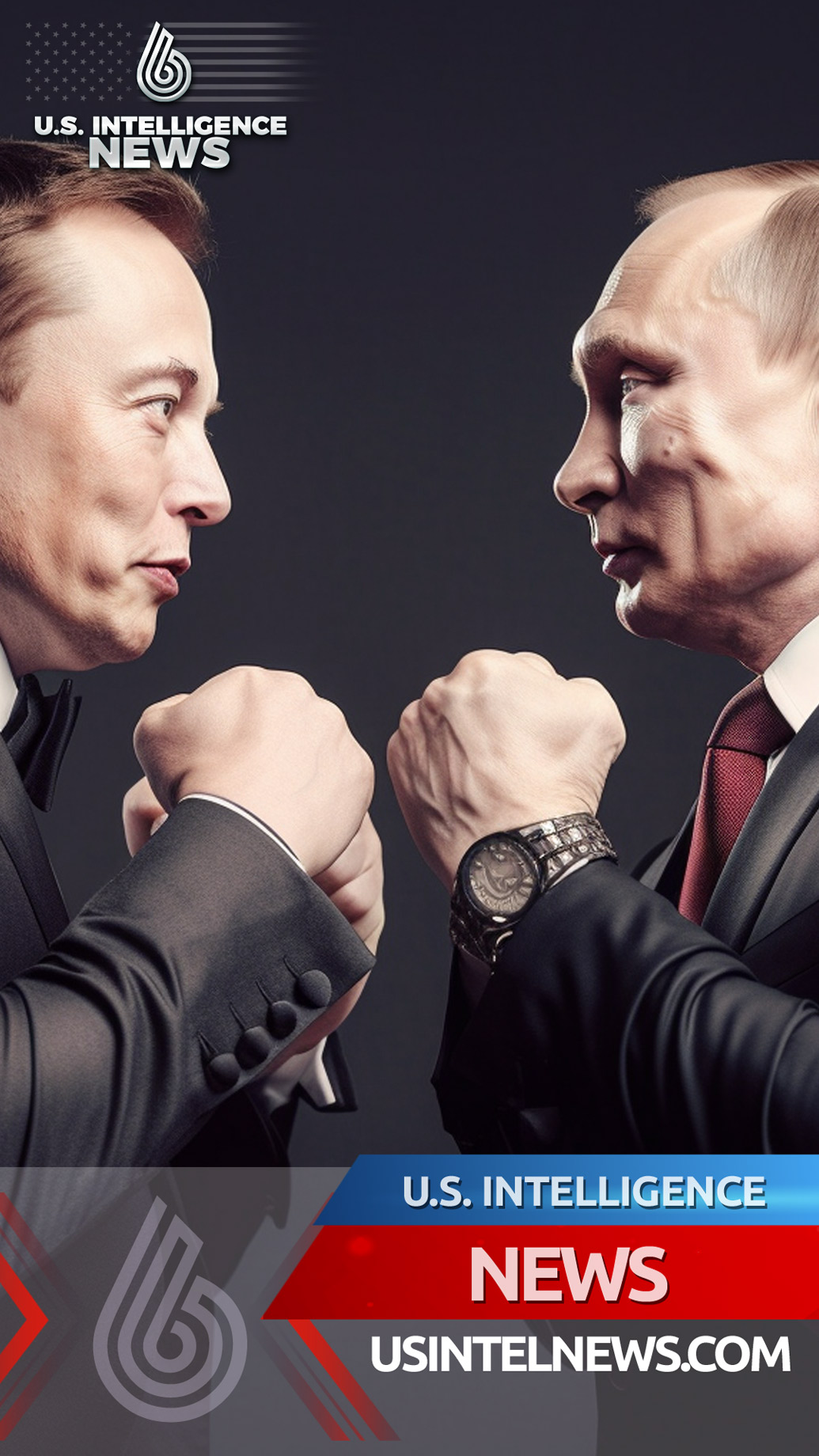
The U.S. Intelligence Community
L.A. Metro, D Line (Purple) Extension Transit Project
Los Angeles, California
11:21 A.M. PDT
THE PRESIDENT: Before you leave — before she walks off the stage, I want her to understand why, for certain, she has this job.
First of all, I know I get criticized by the other team for being the most pro-union President in history. There’s a simple reason for that. (Applause.) People don’t understand how many year- — how many months and years of apprenticeship?
MS. HERNANDEZ: Four.
THE PRESIDENT: Four. Four years. So they think anybody just shows up for a union job and gets a job. It’s like going back to school. It is going to school. And they’re the best in the world. They’re the best in the world, all of you. I’m not just saying that.
The middle class built this country, and unions built the middle class. And you’re on this job because that woman said, “Hire local.” (Applause.)
Anyway, thank you.
MS. HERNANDEZ: Thank you. (Applause.)
THE PRESIDENT: Well, Mr. Mayor and soon-to-be Ms. Mayor — (laughter and applause) — I — Mayor Garcetti has been a good friend for a long, long time.
If I’m being really honest about it, I probably wouldn’t be standing here addressing you had he not helped me a lot. And thank you for welcoming me into your city.
And I want to thank Hilda Solis. I resent the fact she left Washington, because I miss her personally, but her — she — love of her job and what she’s doing for Los Angeles is so consequential.
And a special thank you to California Democrats in Congress, many of whom are here today.
Senator Padilla, I — you — you’re the same way. You jumped in to help me out. You’re doing one hell of a job as a freshman senator. I mean — I mean that sincerely. And it’s noticed by everyone. It’s great to see you.
Representative Maxine Waters — whatever Maxine says, I agree with.
And Natalie [Nanette] Barragán. Natalie, where — where’s Nat- — Nanette. Where’s Nanette? There you are. Sorry, Nanette. I didn’t see you back there.
And Ted Lieu. And Nanette Barragán. Ted, there you are. And Linda Sánchez. And Brad Sherman. And — I just don’t want to leave anybody out.
And — what’s her name again? Karen Bass? (Laughter.)
AUDIENCE MEMBER: Karen Bass! (Applause.)
THE PRESIDENT: Karen, you’re the best. You’re the best.
Look, folks, you know, one of the things about a real leader is: The place they’re trying to lead matters a lot of how much they love the place they (inaudible). She loves this city, and she’s always working with the people of her district.
And I know this is — you and Ted are about a block — you know, separated by a street. But you’re always working to expand opportunity and a better future for all our children and our families for this city and all around the country. And you never leave anybody behind. You never leave anybody behind.
And that’s exactly what this project will do that you all are building. It’s going to be a better life for everybody. And I’m not — that’s not hyperbole.
Before I begin, let me say a few words quickly about today’s report on inflation. Americans are squeezed by the cost of living. It’s been true for years, and folks don’t need a report to tell them they’re being squeezed.
Fighting this battle every day is a key reason why I ran for President of the United States.
The way I think about it is the way my dad used to talk about it. And he’d say, “You know, after the end of the month, when you get your paycheck — at the end of the month, do you have enough to pay for everything you owe, all your bills, and would you have a little left for some breathing room, just a little bit of breathing room.”
And that’s my view of what it important and critical. And a lot of people are hurting these days.
Today’s report shows, though, some progress. Overall, inflation was 2 percent over the last three months. That’s down from 11 percent over the prior three months. And that’s progress.
But a lot of it is the result of getting the cost of living at the gas pump down by more — now even in California now — by more than a dollar nationally and — since the start of summer. And there’s a big difference for working folks.
But the price of gas is still too high, and we need to keep working to bring it down. I’ll have more to say about that next week.
We also need to make more progress bringing down the prices across the board.
That’s why I just couldn’t disagree more with my Republican friends who say that the biggest problem in our economy right now is that working folks are making too much money. No, that’s the argument: Workers are making too much money, and too many people are working, too many jobs are being filled. I think that’s a bunch — as we Irish say, a bunch of malarkey.
The biggest problem — the biggest problem is the world’s challenge: global inflation and the pandemic and Putin’s unconscionable invasion of Ukraine.
Here’s the deal: Because of my economic plan, we are better positioned than any other major economy in the world to weather the challenges and come through this as a stronger country.
We’ve created nearly 700,000 manufacturing jobs just in the last 19 months. (Applause.)
Businesses are investing here in America at record rates. They see what I see: the resilience of the American people and the potential of building an economy from the bottom up and middle out.
Look, when the middle does well and the bottom has a chance, the wealthy do very well. They never get hurt. I’m so tired of trickle-down; I’m finished with it. (Applause.)
So we’re going to keep at it by taking on Big Pharma and the insurance companies, especially the health insurance companies.
With the help of Democrats in Congress here today, I signed the Inflation Reduction Act, which gave Medicare the power that we’ve been trying to get for the last 30 years: the power to negotiate lower prescription drug prices. (Applause.) We pay the highest drug prices of any nations in the world.
For seniors on Medicare, we’re capping the cost of prescription drugs at $2,000 a year even if they’re doing — using the most expensive cancer drug in the world.
We’re capping the cost of insulin, which is 30, 40 times higher than the number I’m going to give you, at $35 — $35 a month. You can’t go higher than that.
Folks, we’re locking in savings on healthcare premiums for millions of people on the Affordable Care Act.
And today, I’m announcing that Social Security benefits are going to go up by an average of $140 a month, even as Medicare premiums go down. (Applause.)
So, folks, seniors are going to get ahead of inflation next year. For the first time in 10 years, their Social Security checks will go up while their Medicare premiums go down.
Here’s my final point. We’ve got an election in a month. Voters have to decide.
Democrats are working to bring down the cost of things and — that are talked about around the kitchen table, from prescription drugs, to health insurance, to energy bills, and so much more. We’re standing up for working people and their right to get a raise and get a better job.
Republicans are campaigning every day on an agenda to raise your costs.
You know, I should point out before I go on a little: The Republican platform so far for this off-year election is led by a senator from — Senator Scott from down in Florida, as well as the — Senator Johnson from up in Wisconsin. And you know what they argue? I — this is on paper. That, in fact, we should be in a situation where Social Security, Medicare, and Medicaid should have to be voted on every single year. Every year. The guy from Florida says, “Every five.” The guy from Wisconsin says, “No, every year, including veterans’ benefits.” So the idea is: You either vote for them or they go out of existence or you cut them, but you got to affirmatively vote every year.
You’ve been paying into a Social Security account from the time you were 16 years old at your first summer job. It’s not fair.
And the biggest thing they say they want to do, they want to get rid of — get rid of — the number-one priority, and they’ve spoken to it: They want to repeal the Inflation Reduction Act. That means they’re going to repeal the $2,000 cap on prescription drug costs. Gone.
The cap on insulin — gone — at 35 bucks.
Savings on healthcare premiums, average of $400 a person. Gone.
Savings on your utility bills. Gone.
Corporate minimum tax of 15 percent — by the way, they got very upset with me. They got very upset with me. You know what I did? Well, there were 55 American corporations who made $40 billion in 2020 — did not pay a single penny — not a penny — in federal tax.
So, I was so harsh. I suggested they pay 15 percent. Less than you pay. Fifteen percent to pay for all this, and it’s paying for it.
But guess what? My Republican colleagues think that’s unfair. They want to repeal that tax.
Folks, you know, Republicans are going to make you — working, middle-class folks — pay higher taxes. And the biggest corporations — and, by the way, in every single piece of legislation I’ve gotten passed with the help of the people here, we have not raised the tax on anybody making less than 400,000 bucks a year one penny. (Applause.) I wish I was making 400- — you were making 400 grand. But not a single penny. No, I mean it: not a single penny.
If Republicans win, inflation is going to get worse. It’s that simple.
Now, to today’s event. For too long, we’ve talked about building the best economy in the world. We’ve talked about asserting America’s leadership, with the best and safest roads, railroads, ports, airports, et cetera. Now we’re finally getting it done.
We’re finally deciding that instead of being ranked — catch this: The last eight years or so, America infrastructure — your bridges, the rails, everything — you know what we were rated in the world — the most powerful nation in the world? Number 13. Thirteen in the world — the United States of America.
Where do businesses come to invest? Where they can get their products out of the port and they get their products out of the yard, and they can have access — bridges, roads, highways.
Look, we should be ranked number one. (Applause.) Instead of Infrastructure Week being a punchline under my predecessor, Infrastructure Decade is a headline on my watch for the next 10 years. (Applause.)
Last year, with the leadership of your members here in Congress, the ones that are here today, I signed into law once-in-a-generation investments on our nation’s roads, highways, bridges, railroads, ports, airports. A law that’s going to deliver clean air; safer water systems, eliminating lead pipes; electric grid to deliver clean energy; high-speed Internet; electric charging stations all across America; the power to fleet — to take care of the fleets of new electric vehicles. It’s called the Bipartisan Infrastructure Law.
And, by the way, we got — we got some Republicans to vote for it. About a third of them voted for it and got it passed. And I thank them for that.
And it’s the most significant investment America has made in our infrastructure — literally, not figuratively — since the Interstate Highway System built by Dwight D. Eisenhower. (Applause.)
And, folks, it includes the largest investment in public transit in the history of America. There’s no better example of what’s happening than right here in Los Angeles. Nearly 10 million people live in L.A. County — I don’t have to tell you that — more than any county in the United States. And every year, people take more than 22 million rides on your subways, your light rail, and your buses. It’s how so many folks get to work, school, and how tourists and locals explore this world-class city.
But the transit system needs an upgrade, badly. You know that. You need to connect more neighborhoods, ease traffic congestion, air pollution, and make it easier for people to get around and where they need to go. That’s exactly what you’re doing. That’s exactly what you’re doing. But it’s being funded in part through this Infrastructure Law — your local taxes and Infrastructure Law.
This project, the extension of Metro’s Purple Line, it’s going to cover one of L.A.’s busiest areas and job centers from UCLA, the future home of — to many sites of the 2028 Olympics. (Applause.) And, by the way, congratulations. I did not use any undue influence. (Laughter.) I just said I like L.A. Anyway. (Laughs.) You’ll get in trouble.
The first Metro rail line opened in 1990 with seventy- — 17 stations. Since then, more lines have been built to meet the needs of this vast city.
Under Mayor Garcetti’s leadership, you finally got going on extending the Purple Line. You got a big boost in funding from the Infrastructure Law to finish the job.
The extension of the Purple Line is going to add seven new stations, build a reliable high-speed connection between Downtown and the Westside. A trip from Koreatown to the VA campus, which now takes over an hour on a bus — sometimes longer than that — it’s going to shrink to 25 minutes on rail.
We expect to see nearly 80,000 more riders on Metro every day, thanks to the Purple Line extension. (Applause.) Roughly 27,000 fewer car rides every day. It’s going to affect pollution in a significant, positive way: 124,000 fewer tons of carbon dioxide pumped into the air whi- — by Los Angeles every year — 124,000. That’s what it takes out of the air. Nearly 14 million gallons of gasoline saved.
And it’s an easier commute for half a million people who come to work every day in Centur- — in Century City or elsewhere on the Westside.
Plus, this project is a job creator. More than 100,000 workers — union workers — more than 100,000 workers — (applause) — hard at work on the entire Purple Line extension, all three sections.
And here’s something else: Typically, companies that bid for projects like this one aren’t required to hire locals. I mentioned this before, but it’s important to mention.
When Karen pushed for a provision in the Infrastructure Bill — I hadn’t even thought about it, to be honest with you — to give agencies like L.A. Metro — and thank you, by the way, for what you’re doing, man — the L.A. Metro the power to require contractors to hire local and make sure the projects that transform communities like yours also create jobs for local people from the communities. Local workers can be first in line for these jobs thanks to Karen. I really mean it, Karen. Thank you very much. (Applause.)
Look, this is just one project — one project the Infrastructure Law is making possible in California.
For example, we’re moving forward with the East — East San Bernardi- — Bernardino [Fernando] Valley Light Rail Project, a project that is close to Senator Padilla’s heart. And he has not let me forget about it ever. And I haven’t. Haven’t, haven’t. And you’re going to bring fast and convenient public transportation options to one of the busiest travel corridors in America.
We’re going to help electrify L.A.’s entire bus fleet by 2030. (Applause.) Entire bus — electrify. That means every single bus in L.A. across nearly 200 bus lines will be electric, which will significantly reduce pollution, especially for folks getting on and off diesel buses who have asthma. Folks, diesel exhaust can really affect people’s health. That’s why we’ve been helping school districts all across the country, I might add, electrify their school buses to keep kids and — avoid childhood asthma.
Los Angeles set a goal of zero emissions for their bus fleets by the end of this decade. We’re going to help make sure you get that done. (Applause.)
And there’s more. America invented modern aviation. We’ve allowed our airports to lag behind our competitors. Not anyone. Not anyone. We’re investing in LAX, including renovations to the central terminal to make it easier to park, to pick up and drop off; to make it to your gate as quickly as possible; and I hope, eventually, to get light rail there too.
Then that’s what we’re doing with our ports. Earlier this year, I visited the Port of Los Angeles, dealing with the whole issue of on-time access to products that we need to make products here in America. We’ve done a lot of work there to ease back-ups and delays, bringing together port operators, shipping companies, labor to move more goods more rapidly.
Last Christmas, we were against the — everyone’s expectation. We managed to get nearly 97 percent of all gifts delivered on time because of those changes, despite the delays caused by the pandemic.
And now we’re going further. We’re building a new four-lane road to the Port of L.A. to make it easier for trucks to drive up to the container terminal, load up their goods for transport. And the Port of Long Beach, one of the busiest container ports in the nation, we’re going to deepen the channels so ships can move in and out of that harbor faster. (Applause.)
And, folks, this is going to make our supply chains more efficient, make trade quicker and easier, and reduce air pollution.
Then — then we’re going to rebuild bridges and highways all across this state like we’re doing across the country.
We’re working every single day to make sure California has access to high — high-speed, affordable Internet. Aren’t you — I don’t ever want to see again where a family has to park in front of McDonald’s to do online schooling because they don’t have access. Already, nearly 2 million homes across California are getting low-cost or free Internet because of the Infrastructure Law.
And we’re going to provide clean water across California, replacing lead pipes, worn-out service lines, replenishing Big Bear and other critical water sources, and expanding water recycling as we deal with this historic drought. And it’s real. They’re just a few examples of the more than 350 projects across California, with more to come.
And when you see these projects in your neighborhood — cranes going up, shovels in the ground, lives being changed — I want you to feel the way I do: pride. Pride in what we can do when we do it together.
This is what I mean when I say we’re building a better America.
For most of the last century, we led the world by a significant margin because we invested in our people and we invested in ourselves.
We used to invest 2 percent of our entire gross domestic product in research and development. It’s down to 0.7 percent. This is the United States of America. But along the way, we stopped. Not everyone though. But I have to say one thing: Even Republicans can get behind this law, although some of them have a funny way of showing it.
Last week, I saw — you saw it too — an interesting report on CNN. You all may have seen. I don’t know if CNN is here, but they put out a report. The headline was, quote, “Republicans called Biden’s infrastructure program ‘socialism.’ And then they asked for [more] money.” End of quote. (Laughter.)
In my church, they say, “Bless me father for I have sinned…” (Laughter.)
But look, the report describes Republicans in detail — I’m not going to mention their names — who voted against the Infrastructure Bill, called me and it “socialist,” and then attacked the — all Democrats who were passing it — “socialism,” “radical spending,” “rushed,” and “irresponsible.”
Well, now they’re quietly and privately sending letters to my administration asking for money. They’re talking about how important projects are in their districts and for all Americans. Well, guess what? I’m going to give them the money because it’s not about them, it’s about the people they represent. (Applause.)
And Speaker Pelosi says, “They vote no and then they take the dough.” (Laughter.) Can’t make this stuff up. I got to say, I’m surprised to see there are so many socialists in the Republican Caucus. (Laughter.) Well, even if they voted against it, I said, I promised during my campaign I’d be President for all of America, every American. Whether you voted for me or not, I’m not leaving anyone behind. (Applause.)
And we’re building a better America together for everyone, even in the districts of the congressmen who voted against it.
Let me close with this: It’s been a rough four or five years for the country. For a lot — for a lot of your families, things are still pretty tough. Even though you got good-paying jobs and health insurance, it’s still pretty tough. But there’s — there are bright spots where America is reasserting itself — like here, where the best workers in the world are hard at work building a better future for all of us. They’re providing our best days to be available to us. And they’re ahead of us, they’re not behind us.
We just have to keep it going, and I know we can. I mean it sincerely. I know we can. I’ve never been more optimistic about America’s future, particularly relative to the rest of the world. We’re better positioned than any nation in the world. And every other nation that I’m aware of is aware of it. When I meet with the heads of state in Europe, in Asia, they know it.
We just have to remember who we are. We are the United States of America, and there’s nothing — nothing beyond our capacity — nothing — when we decide we’re going to do it together.
God bless you all. And may God protect our troops. Thank you. (Applause.) Thanks.
11:44 A.M. PDT
The post Remarks by President<span class="dewidow"> </span>Biden on Bipartisan Infrastructure Law<span class="dewidow"> </span>Investments appeared first on The White House.


 Russia’s Dark Power Struggle: Putin’s Corrupt Empire Teeters on the Edge
Russia’s Dark Power Struggle: Putin’s Corrupt Empire Teeters on the Edge  Bitcoin vs. Ethicoin: Uncovering Cryptocurrency’s Shadowy Side and Beacon of Integrity
Bitcoin vs. Ethicoin: Uncovering Cryptocurrency’s Shadowy Side and Beacon of Integrity  Elon Musk’s Shadowy Alliance with Vladimir Putin: A National Security Threat
Elon Musk’s Shadowy Alliance with Vladimir Putin: A National Security Threat  The Unconventional Diplomatic Dynamics Shaping Global Relations: Trump, Musk, and Covert Negotiations
The Unconventional Diplomatic Dynamics Shaping Global Relations: Trump, Musk, and Covert Negotiations 


